Table of Contents
Come join us now, and enjoy playing your beloved music and browse through great scores of every level and styles!
Can’t find the songbook you’re looking for? Please, email us at: sheetmusiclibrarypdf@gmail.com We’d like to help you!
Sorabji: In the Hothouse (from Two Piano Pieces) sheet music, Noten, partitura, spartiti 楽譜

Best Sheet Music download from our Library.
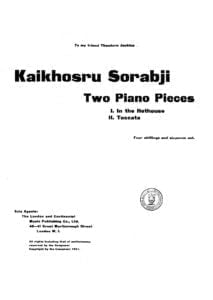
Please, subscribe to our Library.
If you are already a subscriber, please, check our NEW SCORES’ page every month for new sheet music. THANK YOU!
Browse in the Library:
Or browse in the categories menus & download the Library Catalog PDF:
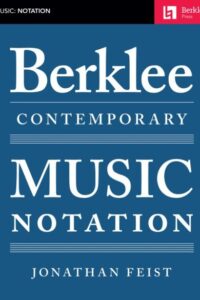
Who was Sorabji?
Kaikhosru Shapurji Sorabji: The Hermit of Modernist Maximalism
In the often-crowded pantheon of 20th-century composers, Kaikhosru Shapurji Sorabji (1892-1988) occupies a unique and enigmatic niche. A composer of staggering ambition, labyrinthine complexity, and self-imposed isolation, Sorabji crafted some of the most monumental, technically demanding, and stylistically idiosyncratic music ever conceived. His work, largely ignored during his lifetime and still challenging audiences today, represents a singular path through modernism – one defined by maximalism, intricate ornamentation, transcendental virtuosity, and a fierce, almost hermetic, independence.
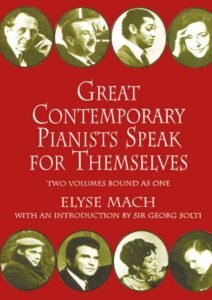
Biography: A Self-Forged Identity
- Birth & Heritage: Born Leon Dudley Sorabji on August 14, 1892, in Chingford, Essex, England. His father was a Parsi engineer from India (thus the Persian-derived name Sorabji), and his mother was English-Spanish. This mixed heritage profoundly shaped his sense of identity, though he felt alienated from both cultures.
- The Name: Around 1914, he legally changed his name to Kaikhosru Shapurji Sorabji. “Kaikhosru” and “Shapurji” were Persian names chosen for their resonance and connection to ancient Persian history and Zoroastrianism, reflecting his deliberate construction of a unique persona.
- Musical Formation: Largely self-taught. He received some piano lessons in his youth but had no formal composition training. His musical education came through voracious listening, score study (especially Bach, Liszt, Busoni, Debussy, Ravel, Scriabin, Szymanowski, Medtner), and wide reading in literature, philosophy, and the occult.
- Early Career & Criticism: Worked as a music critic (under the pseudonym “S. Godfrey”) for outlets like The New Age and The New English Weekly from the 1910s to the 1930s. His critiques were famously acerbic, insightful, and often scathing, particularly targeting English musical provincialism and composers he deemed mediocre (which was most of them).
- The Recluse: Deeply disillusioned by the musical establishment and critical reception to his early performances (which were rare and often controversial), Sorabji gradually withdrew from public musical life starting in the late 1930s. After his mother’s death in 1940, he retreated almost completely to his secluded home “The Eye” in Corfe Castle, Dorset, where he lived with his companion, Reginald Norman Best, until his death. He forbade performances of his music for decades.
- The Ban Lifted: In 1976, pressured by a growing underground interest spearheaded by pianists like Yonty Solomon and Alistair Hinton (who later became his literary executor), Sorabji reluctantly lifted the ban on performances, provided he approved the performer.
- Death: Sorabji died on October 15, 1988, in Winfrith Newburgh, Dorset, leaving behind a colossal legacy of unpublished manuscripts.
Works: Monuments of Sound

Sorabji’s output is vast and overwhelmingly dominated by solo piano music, though he also composed orchestral works, chamber music, organ symphonies, and songs. His works are renowned for their extreme length, density, and technical difficulty, pushing the boundaries of playability.
- Key Masterpieces:
- Opus Clavicembalisticum (1930): His most famous (or infamous) work. A colossal 4+ hour piano epic in 12 movements (including fugues, passacaglias, toccatas, cadenzas), often considered one of the most challenging solo piano works ever written. A summit of contrapuntal complexity and virtuosic display.
- Symphonic Variations for Piano (1935-37): Another monumental work, exploring vast variation forms over an extended duration.
- Sequentia Cyclica super “Dies iræ” ex Missa pro Defunctis (1948-49): A massive cycle of 27 variations on the “Dies Irae” chant, demonstrating his intricate contrapuntal and transformative skills.
- 100 Transcendental Studies (1940-44): True to their name, these studies explore extreme technical and expressive demands far beyond those of Liszt or Chopin.
- Symphonies for Solo Piano: Several exist, including his Symphony No. 2 (“Jāmī”), blending orchestral textures and scope onto the piano.
- Gulistān – Nocturne for Piano (1940): A prime example of his lush, perfumed, and incredibly intricate “Persian”-inspired style.
- Concerti: He wrote several for solo piano and orchestra (e.g., Concerto per suonare da me solo e senza orchestra, per divertirsi), which are symphonic in scale and require superhuman virtuosity.
- Symphonies for Organ: Vast, complex works exploring the sonic possibilities of the instrument.
Analysis of Style: A Universe of Complexity
Sorabji’s style is instantly recognizable yet difficult to categorize. It synthesizes diverse elements into a unique and overwhelming whole:
- Maximalism: This is the defining characteristic. Sorabji embraced extremes:
- Length: Works lasting several hours are common.
- Density: Highly polyphonic textures, often with multiple independent melodic lines woven together in complex counterpoint (influenced by Bach, Busoni).
- Virtuosity: Demands transcendental technique – cascades of notes, complex polyrhythms, wide leaps, immense power, and extreme delicacy. He wrote as if the pianist had four hands.
- Ornamentation: Baroque-like ornamentation (trills, mordents, turns, grace notes) is ubiquitous, often layered and integral to the texture, creating shimmering, kaleidoscopic surfaces (influenced by Scriabin, Szymanowski, Middle Eastern/Persian music).
- Dynamic Range: From barely audible whispers to thunderous, percussive climaxes.
- Harmony: A complex fusion:
- Rooted in late-Romantic chromaticism (Scriabin, Szymanowski, early Schoenberg).
- Freely employed dissonance, clusters, and intricate chord structures.
- Often retained a sense of tonal centers or polarity, even amidst dense chromaticism (unlike strict atonality).
- Incorporated modal inflections, sometimes evoking Persian or Spanish flavors.
- Rhythm: Highly complex and fluid:
- Frequent use of polyrhythms (multiple simultaneous rhythms), cross-rhythms, and nested tuplets (triplets within quintuplets, etc.).
- Tempo often fluctuates wildly, requiring immense control.
- A sense of improvisatory freedom within highly structured forms.
- Form: Often large-scale, complex, and idiosyncratic:
- Favored variations (passacaglias, chaconnes), fugues, toccatas, and intricate multi-movement structures (like the Opus Clavicembalisticum).
- Forms were often expansive and cumulative, building through layered repetition and intensification rather than traditional development.
- Architecture was paramount, even in the densest textures.
- Influences (Assimilated, Not Imitated):
- Ferruccio Busoni: The most profound influence. Busoni’s ideas of “Young Classicism,” the transcendental potential of the piano, the fusion of Bachian counterpoint with modern harmony, and the concept of “Junge Klassizität” resonated deeply. Sorabji dedicated his Opus Clavicembalisticum to Busoni’s memory.
- Franz Liszt: Virtuosity, thematic transformation, large-scale forms, and the symphonic poem concept translated to piano.
- J.S. Bach: Contrapuntal mastery, structural rigor, and the use of forms like fugue and passacaglia.
- Alexander Scriabin: Mysticism, harmonic language, dense textures, and ecstatic climaxes.
- Karol Szymanowski: Sensuous harmony, intricate ornamentation (especially in the “Persian” inspired works like Métopes and Masques), and voluptuous textures.
- Debussy & Ravel: Color, texture, exoticism, and pianistic refinement.
- Mediterranean & Persian Cultures: While not authentically recreating these styles, he evoked their essence through ornamentation, melodic turns, and titles (Gulistān, Jāmī), reflecting his fascination with his Persian heritage and the wider Orient.
- Aesthetic: Sorabji’s music aimed for:
- Transcendence: Pushing beyond perceived limits of instrument, performer, and listener.
- Luxuriance & Opulence: A rich, sensual, almost decadent sound world.
- Intellectual Rigor: Underlying the sensual surface was meticulous structural planning.
- Individualism: A complete rejection of prevailing trends (serialism, neoclassicism, minimalism) in favor of his own uncompromising vision.
Legacy: From Obscurity to Cult Status
Sorabji’s legacy is complex and evolving:
- Decades of Neglect: His self-imposed exile and performance ban meant his music was virtually unknown outside a tiny circle for nearly 40 years. Manuscripts were inaccessible, unplayable, and unpublished.
- The Pioneers (1970s-): The lifting of the ban sparked interest. Pianists like Yonty Solomon, Michael Habermann, Geoffrey Douglas Madge (who made the first complete recording of Opus Clavicembalisticum in 1977), and later Marc-André Hamelin, Jonathan Powell, Fredrik Ullén, and Ronald Stevenson began the monumental task of learning, performing, and recording his works. This required immense dedication and technical prowess.
- Publication & Scholarship: The Sorabji Archive, established by Alistair Hinton (Sorabji’s literary executor), has been crucial in cataloging, editing, and facilitating the publication of scores (primarily by Dover Publications and The Sorabji Music Archive). Scholarly work is gradually increasing.
- Recordings Renaissance: The CD era and digital distribution (YouTube, streaming) have been transformative. Dedicated labels (Altarus, BIS, Toccata Classics, Piano Classics) have released numerous recordings, making this once-inaccessible music available globally. Complete cycles of the 100 Studies and other major works are underway.
- The Cult & The Challenge: Sorabji remains a “composer’s composer” and a cult figure. His music is not mainstream concert fare due to its extreme demands and duration. However, it commands deep respect and fascination among pianists, composers, and listeners drawn to its unique sound world and uncompromising vision. He is seen as the ultimate iconoclast, forging a path utterly independent of 20th-century musical fashions.
- Influence: His direct influence on other composers is hard to pinpoint due to his obscurity, but he stands as a powerful symbol of uncompromising artistic integrity and the exploration of extreme complexity and virtuosity. Composers interested in maximalism, intricate counterpoint, or pushing pianistic limits inevitably encounter his shadow.
- Copyright Controversy: The complex copyright status of his works (involving the Sorabji Archive and publishers) has sometimes been a point of friction within the community of performers and scholars seeking access.
Sorabji: The Solitary Giant
Kaikhosru Shapurji Sorabji was a true original. He inhabited a musical universe entirely of his own making, synthesizing diverse influences into a style characterized by unparalleled complexity, sensuous opulence, and transcendental ambition. His deliberate withdrawal from the world ensured decades of obscurity, but the dedication of pioneering performers and the power of recording technology have brought his extraordinary soundscapes to light. While his music remains challenging and demanding, it offers unparalleled rewards: a journey into a world of labyrinthine beauty, overwhelming power, and intellectual fascination. Sorabji stands as a testament to the power of an utterly individual artistic vision, uncompromising in its scope and ambition, a solitary giant whose monumental creations continue to challenge and inspire. He redefined the possible for the piano and left a legacy that continues to unfold as more performers dare to scale his musical Himalayas.
“In the Hothouse” is one of Sorabji’s most evocative and frequently performed works, serving as a perfect entry point into his dense, sensuous sound world. Here’s a detailed look at this fascinating piece:
Context: Two Piano Pieces (1918)
- Composed: 1918 (early in Sorabji’s career, age 26).
- Publication: First published in 1920, making it one of the earliest Sorabji works available in print.
- The Pair: “In the Hothouse” is paired with “Toccata” – a contrasting, hyper-virtuosic, and structurally complex piece showing his Busoni/Liszt influences. “In the Hothouse” offers the sensual, atmospheric counterpoint.
- Significance: Represents Sorabji’s early mastery of texture, harmony, and evocative atmosphere. It predates his gargantuan works but already displays his unique voice.
“In the Hothouse”: A Sensory Immersion
- Title & Imagery: The title instantly conjures an environment: humid, lush, teeming with exotic, overripe plant life, heavy perfumes, and stifling, enclosed heat. Sorabji translates this sensory overload into sound.
- Form & Structure: Relatively free and rhapsodic. It unfolds as a continuous, organic stream of consciousness rather than adhering to strict classical forms. Think of it as an elaborate, decadent arabesque.
- Style & Character:
- Extreme Sensuality: This is the defining feature. The music drips with lush, complex harmonies and suffocatingly rich textures.
- Harmony: Deeply chromatic, rooted in late Scriabin and early Szymanowski. Expect dense, constantly shifting chords: augmented harmonies, whole-tone inflections, unresolved dissonances creating tension, and sudden moments of surprising consonance like shafts of light piercing foliage. It avoids traditional tonality but gravitates around implied centers.
- Texture: Thick, layered, and constantly in motion. Tremolos, trills, rapid filigree (ornamental passages), and cascading arpeggios create a shimmering, humid haze. Melodies are often embedded within this dense undergrowth rather than standing clearly apart. The writing often requires the pianist to sustain multiple layers simultaneously.
- Rhythm: Fluid and flexible, often obscured by the sheer density of notes and ornamentation. Rubato (expressive tempo fluctuations) is essential. While less overtly complex polyrhythmically than his later works, the rhythmic flow feels organic and improvisatory.
- Dynamics & Articulation: Wide dynamic range, often shifting suddenly between extremes (e.g., thunderous climaxes collapsing into fragile whispers). Articulation varies from sharp staccatos to legatissimo passages that blur together. Pedaling is crucial for sustaining the harmonic haze and creating resonance.
- Ornamentation: Quintessential early Sorabji. Trills, mordents, turns, and grace notes are not mere decoration; they are the texture, creating constant flickering movement and contributing to the claustrophobic, teeming atmosphere. This foreshadows the intricate ornamentation dominating his mature style.
- Emotional Landscape: Evokes opulence, decadence, languor, mystery, stifling heat, hidden dangers, and overwhelming sensory stimulation. There’s a sense of beauty bordering on the grotesque due to its sheer intensity.
Influences Audible in “In the Hothouse”
- Scriabin (Primary): The harmonic language (mystic chords, unresolved dissonance, ecstatic climaxes), the sensual atmosphere, and the use of trills/tremolos are deeply indebted to Scriabin’s late sonatas and poems (e.g., Vers la flamme). Sorabji pushes Scriabin’s decadence further.
- Szymanowski: The opulent textures, perfumed harmonies, and “orientalist” exoticism (though abstracted here) strongly recall Szymanowski’s “Métopes” or “Masques,” which Sorabji admired deeply.
- Debussy: The focus on atmosphere, texture, and harmonic color (whole-tone scales, parallel chords) shows Debussy’s influence, though rendered with far greater density and intensity.
- Ravel: The virtuosic filigree and lush harmonies (think “Gaspard de la Nuit,” especially “Ondine” or “Le gibet”) are a touchstone, again amplified.
- Liszt: The rhapsodic freedom and dramatic gestures hint at Liszt, though filtered through a post-Scriabinesque lens.
Performance Challenges
- Texture & Balance: Maintaining clarity amidst the dense, rapidly shifting textures is paramount. The pianist must carefully voice chords and layers to prevent muddiness while sustaining the essential harmonic haze.
- Ornamentation as Texture: Executing the constant ornamentation smoothly and evenly, integrating it into the melodic and harmonic flow rather than treating it as mere decoration.
- Dynamic Control: Navigating the extreme dynamic contrasts and sudden shifts without sounding jarring. Creating a true pianissimo shimmer within complexity is incredibly difficult.
- Rubato & Phrasing: Applying expressive tempo fluctuations naturally while maintaining the overall structural coherence and forward momentum of the rhapsodic form.
- Pedaling: Using the pedal to create resonance and blend without causing harmonic blurring or loss of rhythmic definition. Requires exceptional sensitivity.
- Stamina & Focus: While shorter than his later works (typically 12-15 minutes), the piece demands intense concentration and physical control to sustain the atmosphere and navigate the technical intricacies.
Legacy & Significance of “In the Hothouse”
- Accessibility: It remains one of Sorabji’s most “accessible” works due to its evocative title, relatively shorter duration, and concentrated expression. It’s a frequent choice for pianists introducing audiences to Sorabji.
- Blueprint: It serves as a crucial blueprint for Sorabji’s mature style, showcasing his core preoccupations: sensuality, harmonic density, intricate ornamentation as texture, and atmospheric evocation, all present in embryonic form.
- Performance History: Despite Sorabji’s later ban, “In the Hothouse” (along with the Toccata) was one of the few pieces occasionally performed during his lifetime (e.g., by Sorabji himself and pianist Reginald Paul) and became a key work for the pioneering generation post-1976 (Yonty Solomon, Michael Habermann, Marc-André Hamelin, Jonathan Powell, Fredrik Ullén).
- Gateway Piece: It functions as a vital “gateway drug” into Sorabji’s world. Its success in conveying its intense atmosphere often encourages listeners to explore his more monumental, complex works.
- Standalone Masterpiece: Regardless of its role as an introduction, it stands as a perfectly formed and powerful piece of early modernist piano writing, a miniature tone poem of extraordinary evocative power.
“In the Hothouse” is a sun-drenched, overripe, and intoxicating immersion into Sorabji’s unique aesthetic. It captures the essence of his sensual maximalism in a concentrated dose, showcasing his debt to Scriabin and Szymanowski while asserting his own distinct voice. Its evocative power, technical brilliance, and relative brevity ensure its enduring place as one of his most beloved and frequently performed works, offering a compelling glimpse into the hothouse of Sorabji’s extraordinary musical imagination.
| Artist or Composer / Score name | Cover | List of Contents |
|---|---|---|
| Fred Hersch Compositions Vol. 1 Songs Titles A-M Concert Key |
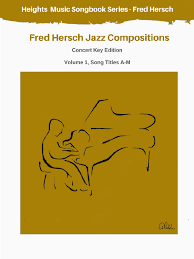 |
Fred Hersch Compositions Vol. 1 Songs Titles A-M Concert Key |
| Fred Hersch Compositions Vol. 2 Songs Titles N-W Concert Key |
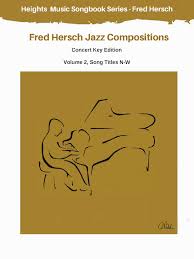 |
Fred Hersch Compositions Vol. 2 Songs Titles N-W Concert Key |
| Fred Hersch You And The Night And The Music Arrangement Piano |
 |
|
| Fred Sokolow Great Rockabilly Guitar Solos |
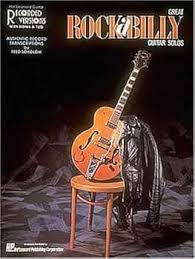 |
Fred Sokolow Great Rockabilly Guitar Solos |
| Fred Sokolow The Complete Jazz Guitar (with TAB) |
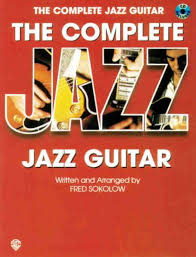 |
|
| Fred Sokolow The Roots of Jazz Guitar (with TAB) |
 |
|
| Freddie Hubbard Jamey Aebersold Vol 60 Jazz Play Along Book + Audio Mp3 |
 |
Freddie Hubbard Jamey Aebersold Vol 60 |
| Freddie Hubbard – Mr. Clean (by Weldon Irvine) | Freddie Hubbard – Mr. Clean (by Weldon Irvine) | |
| Freddie Hubbard Solo On When You Wish Upon A Star |
 |
|
| Freddie King 15 Great Songs From A Blues Legend Guitar with Tablature |
 |
Freddie King Guitar |
| Freddie Mercury album (Queen) Piano Vocal Guitar |
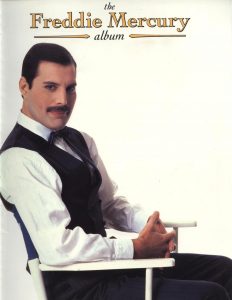 |
The Freddie Mercury -Album |
| Freddie Mercury Mike Moran Barcelona With Montserrat Caballe (Queen) Arr Frank Bernaerts | Freddie Mercury Mike Moran Barcelona With Montserrat Caballe (Queen) Arr Frank Bernaerts | |
| Freddie Mercury Mr Bad Guy Guitar Songbook |
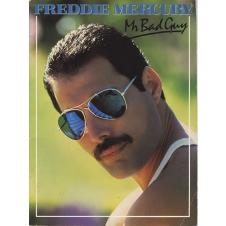 |
|
| Freddy Mercury – Love Of My Life | ||
| Free Jazz Research Guide (Book) by Jeff Schwartz |
 |
|
| Frescobaldi, Girolamo Canzoni da sonare urtext (Book 1) |
 |
|
| Friedrich Gulda – Play Piano Play | Friedrich Gulda-Play Piano Play | |
| FRIENDS Piano-Vocal-Chords |
 |
FRIENDS Piano-Vocal-Chords |
| Friends Theme – I’ll Be There For You (Musescore File).mscz | ||
| Friends Theme – I’ll Be There For You (piano solo) by The Reambrands |
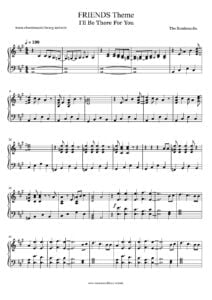 |
|
| Friml, Rudolf – Chanson (The Donkey Serenade From The Film The Firefly) |
 |
|
| Friml, Rudolf – Echoes Of Spring (for piano or organ) |
 |
|
| Friml, Rudolf – The Vagabond King A Musical Play (Piano Vocal Score) |
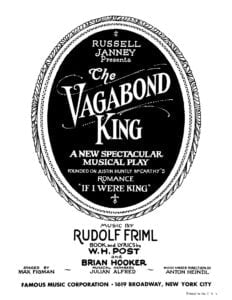 |
|
| Fritha Alone (Camel) | ||
| Fritha Alone (easier version) | ||
| Frolov Gershwin Porgy And Bess Fantasy on Themes For Violin And Piano | Frolov Gershwin Porgy And Bess Fantasy on Themes For Violin And Piano | |
| Frolov, Igor Divertimento For Two Violins And Piano | Frolov, Igor Divertimento For Two Violins And Piano | |
| From Arena to Skyrim All Elder Scrolls Themes | ||
| From Birdland to Broadway Scenes from a Jazz Life (Bill Crow)(Book) |
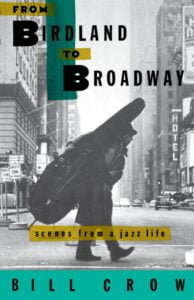 |
|
| From The Dance Arr. James Edwards for Guitar + Tablature (Mel Bay) |
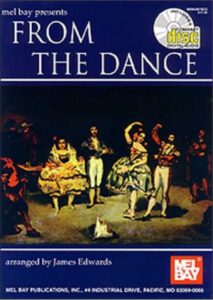 |
From The Dance Arr. James Edwards for Guitar + Tablature (Mel Bay) |
| Frozen 2 Lost In The Woods Sheet Music | Frozen 2 Lost In The Woods Sheet Music | |
| Frozen 2 Into The Unknown Sheet Music | Frozen 2 Into-The-Unknown | |
| FROZEN 2 All is found (Disney) | FROZEN 2 All is found (Disney) | |
| Frozen Songbook For Piano, Vocal & Guitar |
 |
Frozen Songbook For Piano, Vocal & Guitar |
| Fuentes, Rubén La Bikina (Arr. For Guitar By Carles Trepat) |
 |
|
| Fugess – Killing Me Softly | ||
| Full House OST Series Full House (풀하우스) ost Why_ 운명 (Fate) | Full House OST Series Full House (풀하우스) ost Why_ 운명 (Fate) | |
| Full Metal Alchemist – Two Years Thereafter | ||
| Full Monty The Broadway Musical Songbook by David Yazbek Piano Vocal Selections |
 |
Full Monty The Broadway Musical Songbook by David Yazbek Piano Vocal Selections |
| Full Moon And Empty Arms by Buddy Kaye and Ted Mossman, based Rachmaninoff’s Piano Concerto No. 2 |
 |
|
| Full Moon Wo Sagashite – Love Chronicles | ||
| Fundamentals Of Piano Technique The Russian Method Newly Revised By James Susan Mckeever (Book) |
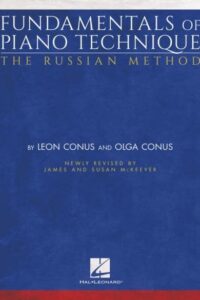 |
|
| Fundamentals Of Piano Theory Level 1 by Keith Snell and Martha Ashleigh |
 |
|
| Fundamentals Of Piano Theory Preparatory Level by Keith Snell and Martha Ashleigh |
 |
|
| Funeral March F. Chopin (Musescore File).mscz | ||
| Funny Girl (the Musical) Piano Vocal score by Jule Stein & Bob Merrill |
 |
|
| Fur Elise (Easy Piano) (Musescore File).mscz | ||
| G Blues For Two Guitars – Joe Pass And Herb Ellis | G Blues For Two Guitars – Joe Pass And Herb Ellis | |
| G Blues For Two Guitars – Joe Pass And Herb Ellis (Musescore File).mscz | ||
| G. Schäfer Sight Reading Exercises For Piano |
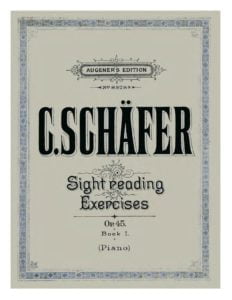 |
|
| Gabriel Faure Requiem Op.48 V Agnus Dei.mscz | ||
| Gabriel Fauré – Cantique De Jean Racine (Musescore File).mscz | ||
| Gabriel Fauré – Sicilienne Op. 78 (Musescore File).mscz | ||
| Gabriel Yared – The English Patient Piano Solo selections |
 |
Gabriel Yared – The English Patient Piano Solo selections |
| Gabriel Yared Betty Blue – C’est le vent, Betty | Gabriel-Yared-Betty-Blue | |
| Gabriel Yared The English Patient A Retreat |
 |
|
| Gabriel Yared The Piano Collection |
 |
Gabriel Yared The Piano Collection |
| Gabriel Yared The Unfeeling Kiss From City Of Angels Piano Solo | Gabriel Yared The Unfeeling Kis From City Of Angels Piano Solo | |
| Gabriel’s Oboe – The Mission OST (Ennio Morricone) | ||
| Gabrielle – Out Of Reach | ||
| Gabrielle – Rise | ||
| Gaetano Donizetti – Una Furtiva Lagrima (Guitar arr. sheet music with TABs) | Gaetano Donizetti – Una Furtiva Lagrima (Guitar arr. sheet music with TABs) | |
| Gagnon André – Origami (Musescore File).mscz | ||
| Gagnon André – Un Piano Sur La Mer (Partition Sheet Music) 加拿大作曲、鋼琴家(andre Gagnon 安德魯• 甘儂) (Musescore File).mscz | ||
| Gainsbourg, Serge La Javanaise | Gainsbourg, Serge La Javanaise | |
| GAINZA, V. – La improvisación musical | ||
| Galt MacDermot Aquarius | Galt MacDermot – 01 – Aquarius | |
| Galuppi Sonate No 5 Andante (Musescore File).mscz | ||
| Galuppi, Baldassare Sonate No 5 Andante | Galuppi-Baldassare-Sonate-No-5-Andante-sheet-music-pdf 1st page | |
| Galuppi, Baldassare – 12 Sonate per il cembalo (Piano) |
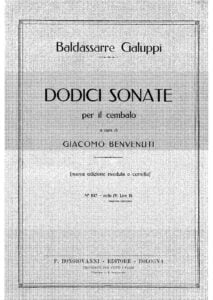 |
Galuppi, Baldassare – 12 Sonate per il cembalo (Piano) content |
| Gambale, Frank – Guitar Technique Book I (Manhattan Music) |
 |
|
| Gambale, Frank – Guitar Technique Book II (Manhattan Music) |
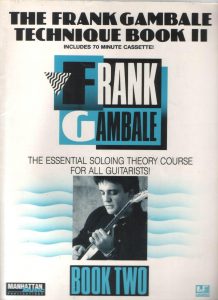 |
|
| Game of Thrones Light of the Seven (Piano) | Game of Thrones – Light of the Seven (Taioo) | |
| Game Of Thrones Main Theme Ramin Djawadi | Game Of Thrones Main Theme Ramin Djawadi sheet music pdf | |
| Game Of Thrones Easy Piano (Musescore File).mscz | ||
| Game Of Thrones Easy Piano by Ramin Djawadi | Game Of Thrones Easy Piano by Ramin Djawadi | |
| Game Of Thrones Main Theme Easy Piano |
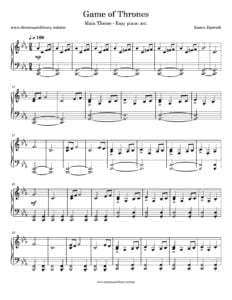 |
|
| Game Of Thrones Main Theme Easy Piano (Musescore File).mscz | ||
| Game Of Thrones – Main Theme – Piano |
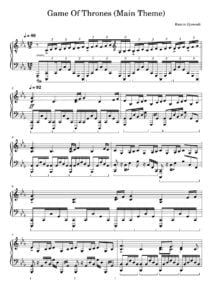 |
|
| Game Of Thrones – Main Theme – Piano (Musescore File).mscz | ||
| Game of Thrones – Main theme (orchestral music score) | Game of Thrones – Main theme (orchestra music score) | |
| Game Of Thrones (Season 8-3) The Night King By Ramin Djawadi (Piano) |
 |
Game of Thrones S8 – The Night King 1 |
| Game Of Thrones 8 Jenny Of Oldstones |
 |
|
| Game Of Thrones For Alto Sax And Piano Theme From The HBO Series |
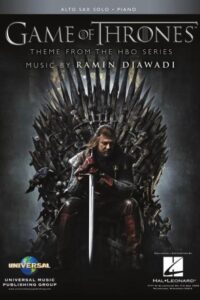 |
|
| Game Of Thrones Jenny Of Oldstones |
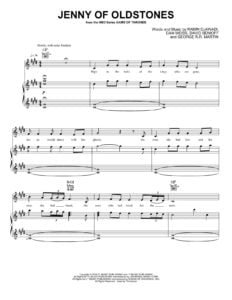 |
|
| Game of Thrones Light Of The Seven Piano Solo by Ramin Djawadi easy piano solo |
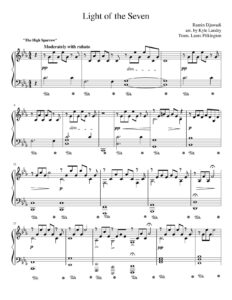 |
|
| Game Of Thrones Light Of The Seven Ramin Djawadi |
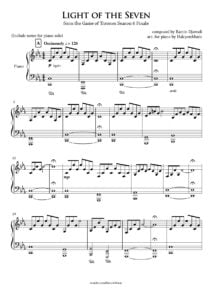 |
|
| Game Of Thrones Main Title Guitar with Tablature |
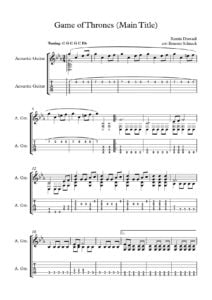 |
|
| Game of Thrones Medley | Game of Thrones Medley | |
| Game Of Thrones Medley (Ramin Djawadi) Virtuosic piano by Jarrod Radnich | Game Of Thrones Medley (Ramin Djawadi) arr. for piano by virtuoso Jarrod Radnich | |
| Game Of Thrones Opening 4 Hands |
 |
|
| Game Of Thrones Original Music From The HBO Television Series Easy Piano |
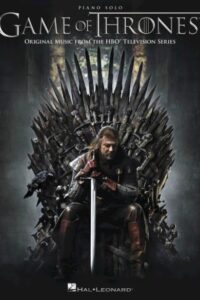 |
Game Of Thrones Original Music From The HBO Television Series Easy Piano |
| Game Of Thrones Original Music From The HBO Television Series Solo Guitar With Tablature |
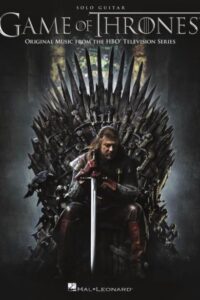 |
Game Of Thrones Original Music From The HBO Television Series Solo Guitar With Tablature |
| Game of Thrones Ramin Djawadi (orchestral score) |
 |
|
| Game of Thrones Season 5 Ep. 6 House of Black and White |
 |
|
| Game Of Thrones Season 8 Original Music From The HBO Series Piano Solo |
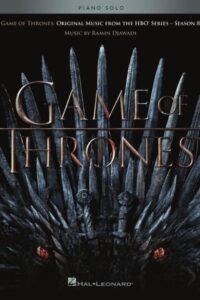 |
Game Of Thrones Season 8 Original Music From The HBO Series Piano Solo |
| Game Of Thrones Songbook Original Music From The HBO Television Series (Ramin Djawadi) Piano Solo |
 |
Game Of Thrones Songbook Original Music From The Hbo Television Series (Ramin Djawadi) Piano Solo |
| Game of Thrones The Night King by Ramin Djawadi advanced piano solo |
 |
|
| Game Of Thrones Theme Arranged For Violin and Piano |
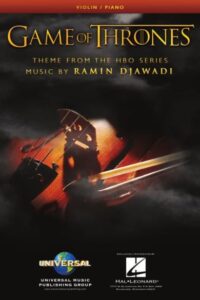 |
|
| Game of Thrones Theme for Cello and Piano by Ramin Djawadi |
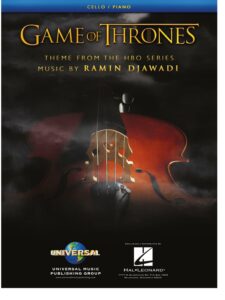 |
|
| Game of Thrones Title Theme |
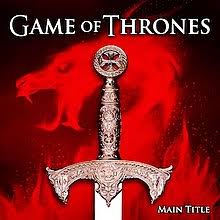 |
Game of Thrones Title Theme |
| Gannon and Kent – I’ll Be Home For Christmas (sheet music) | Gannon and Kent – I’ll Be Home For Christmas (sheet music) | |
| García Lorca, Federico Canciones Españolas Antiguas (Piano And Vocal)) |
 |
García Lorca, Federico Canciones Españolas Antiguas (Piano And Vocal)) |
| Gareth Coker Ori And The Blind Forest Main Theme | Gareth Coker Ori And The Blind Forest Main Theme | |
| Garland / Rollins The Most Beautiful Girl in the World | McCoy Tyner Pursuance | |
| Garner Erroll – Misty (Piano) | Garner Erroll – Misty Piano (1) | |
| Garner Erroll – Misty Piano (another version) | ||
| Garota De Ipanema By Antonio Carlos Jobim (Guitar With Tab) |
 |
|
| Garota De Ipanema By Antonio Carlos Jobim (Musescore File).mscz | ||
| Garth Brooks – To Make You Feel My Love | ||
| Gary Burton And Makoto Ozone Afro Blue Transcription | Gary Burton And Makoto Ozone Afro Blue Transcription | |
| Gary Burton Learning To Listen The Jazz Journey Of Gary Burton An Autobiography (Book) Berklee |
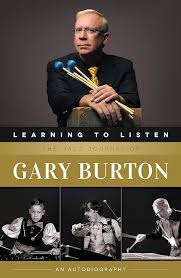 |
|
| Gary Jules – Mad World | ||
| Gary Moore Parisienne Walkways Guitar With Tabs | Gary Moore Parisienne Walkways Guitar With Tabs | |
| Gary Moore Still Got The Blues (Guitar Play Along).mscz | ||
| Gary Moore – Ballads Songbook (Guitar Book) |
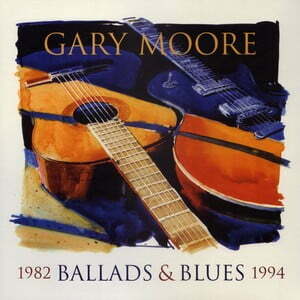 |
 |
| Gary Moore – Greatest Hits (Guitar & Bass Tab Book) |
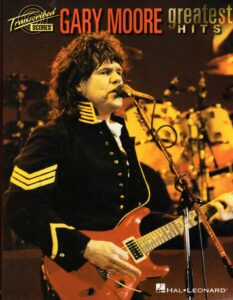 |
Gary Moore – Greatest Hits (Guitar & Bass Tab Book) |
| Gary Moore – Jam with (with MP3 audio tracks to play along) |
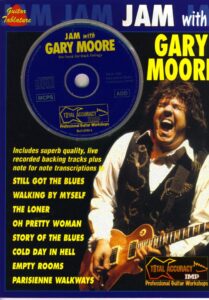 |
Gary Moore – Jam with (with MP3 audio tracks to play along) |
| Gary Moore – Parisienne Walkways (+Mp3 Backing tracks) (Guitar Tabs) |
 |
|
| Gary Moore – Still Got The Blues (Guitar Play Along) |
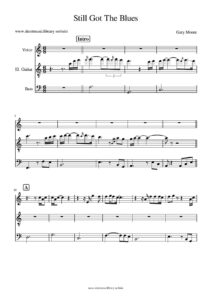 |
|
| Gary Moore – Still Got The Blues-Songbook |
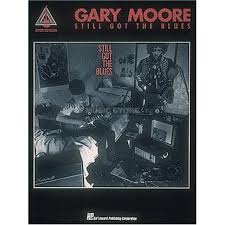 |
 |
| Gary Moore After Hours Guitar Songbook with Tablature |
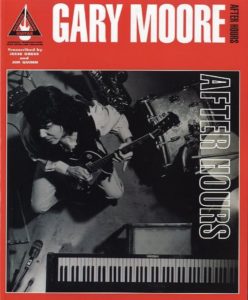 |
Gary Moore after hours guitar songbook |
| Gary Moore Best Of Gary Moore Guitar TAB Vocal |
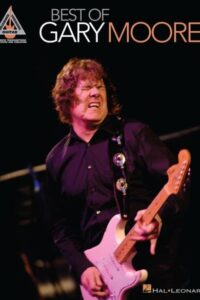 |
Gary Moore Best Of Gary Moore Guitar TAB Vocal |
| Gary Moore Original Songbook GUITAR TABS (AUDIO MP3 + PDF) Wolf Marshall |
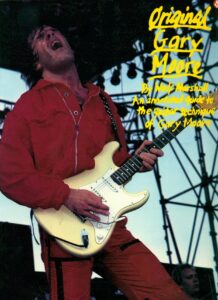 |
Gary Moore (Original Songbook) Wolf Marshall (Guitar) |
| Gary Moore Parisienne Walkways Guitar Tabs |
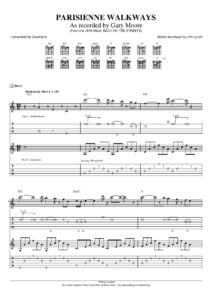 |
|
| Gary Moore The Guitar Style Of Guitar TABs |
 |
Gary Moore The Guitar Style Of Guitar TABs |
| Gary Moore The Loner Transcription Guitar TABs |
 |
|
| Gary Moore The Official Biography (Book) |
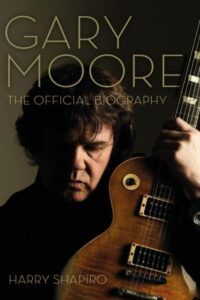 |
|
| Gaspar Sanz – Canarios – Guitar Tablature |
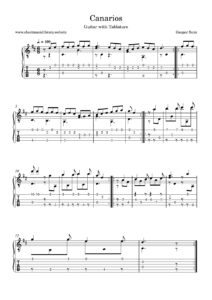 |
|
| Gaspar Sanz – Canarios (Partitura Sheet Music) Guitarra Guitar (Musescore File).mscz | ||
| Gaspar Sanz Metodo Guitarra |
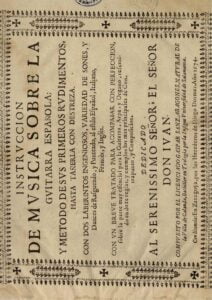 |
|
| Gato Barbieri – Europa Earth’s Cry, Heaven’s Smile Tenor Sax Transcription |
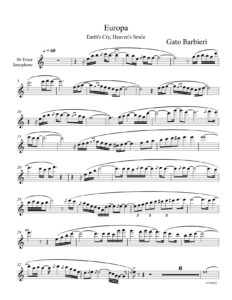 |
|
| Gato Barbieri – Last Tango In Paris (piano solo sheet music) |
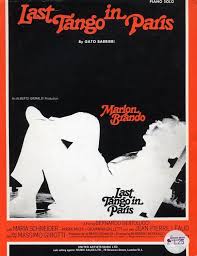 |
|
| Gato Barbieri (Sergio Pujol) Book Español – Spanish |
 |
|
| Gayane’s Adagio – Khachaturian (Piano Solo) (Musescore File).mscz | ||
| Gayaneh – Ayshe’s dance (Aram Khachaturian) | ||
| GAZEBO and P.L. GIOMBINI I LIKE CHOPIN (arr. PAUL MAURIAT).mscz | ||
| Gazebo I Like Chopin |
 |
|
| Gazebo I Like Chopin arr. Paul Mauriat Piano solo partition |
 |
|
| Gazebo I Like Chopin Hans-Günter Heumann |
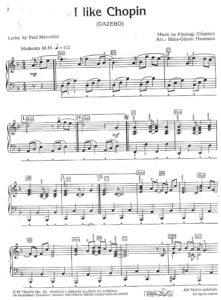 |
|
| GAZMURI, D. – Método de improvisación (Spanish- Español) Básico e intermedio | ||
| Gene Harris The Collection- Artisty Piano Transcriptions |
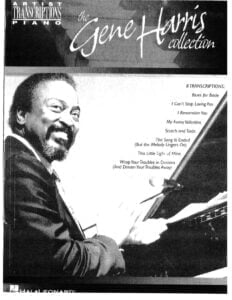 |
Gene Harris The Collection- Artisty Piano Transcriptions |
| Genesis The Return of the Giant Hogweed |
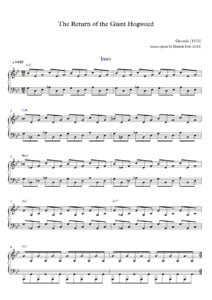 |
|
| Genesis – Anyway – The Lamb Lies Down in Broadway | Genesis – Anyway – The Lamb Lies Down in Broadway | |
| Genesis – Anyway – The Lamb Lies Down In Broadway (Musescore File).mscz | ||
| Genesis – Firth Of Fifth Piano Score transcription |
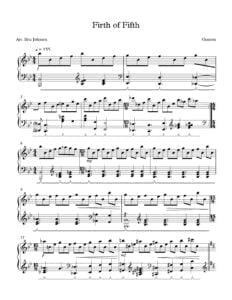 |
Genesis – Firth Of Fifth |
| Genesis – Firth Of Fifth (Musescore File).mscz | ||
| Genesis – Horizons (Guitar TAB) |
 |
|
| Genesis – Horizons (Piano) |
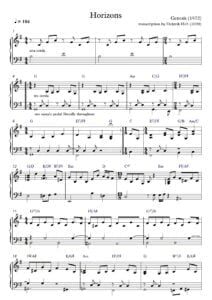 |
|
| Genesis – Rock Score (six great songs scored for small groups w/lyrics) Full score |
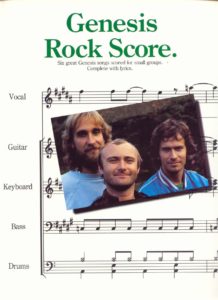 |
Genesis – Rock Book Score (Full Band Score) |
